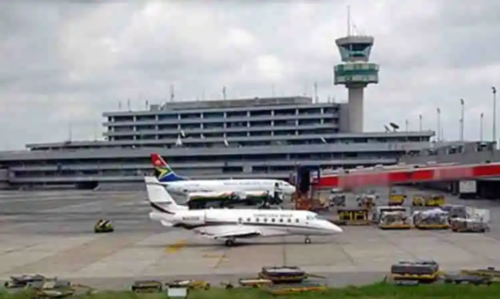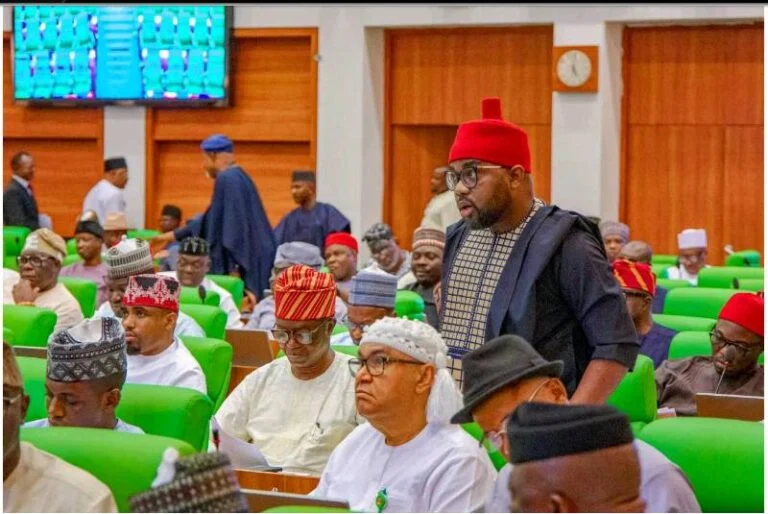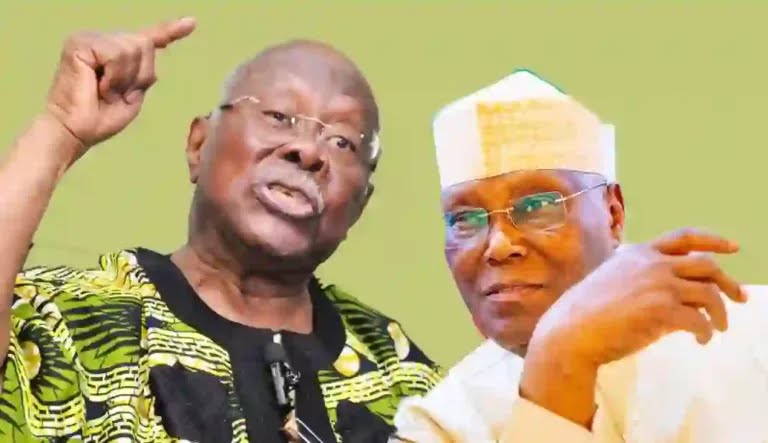Chaos may break out across airports in the country as aviation unions vowed on Sunday to begin a two-day warning strike on Monday.
The development could leave many air passengers stranded in Lagos, Abuja and other airports in the country.
Domestic and international airlines are likely to be forced to cancel their flights as aviation workers down tools in protest against what they say is the government’s failure to address their concerns regarding national minimum wage consequential adjustment and working conditions.
Union leaders said they were left with no choice but to take a drastic action to force the Federal Government to implement earlier agreements reached on minimum wage and workers general welfare.
Last week, aviation workers issued a two-day warning strike notice signed by the secretaries general of five unions stating that if the warning strike, scheduled to commence on April 17 failed, an indefinite strike would be embarked upon.
The unions threatened to withdraw their services over the refusal of the Federal Government to release the reviewed condition of service negotiated over seven years ago.
Other grievances include the non-implementation of the National Minimum Wage consequential adjustments and arrears for workers of the Nigeria Meteorological Agency since 2019.
Aviation unions comprise the Air Transport Services Senior Staff Association of Nigeria, National Association of Aircraft Pilots and Engineers, Association of Nigeria Aviation Professionals, Amalgamated Union of Public Corporations, Civil Service Technical and Recreational Services Employees.
On Sunday, the union leaders told journalists that barring any last-minute change, they would embark on the strike beginning from Monday (today).
The unions also, in a letter to the Nigerian Civil Aviation Authority where the agency had called for a meeting to look into the grievances of the union, stated that while they appreciate the Director-General of the NCAA, they would not be able to honour the invitation as they had other meetings slated for the same day.
The letter read in part, “Our unions sincerely appreciate the genuine concern of the DGCA towards upholding and maintaining of industrial peace and harmony in the aviation industry, but we regret to be unavoidably constrained to make the trip to Abuja for the scheduled 1.00 pm meeting today (Sunday).
“This is mainly due to the fact that our unions have slated a series of meetings with our structures for today in Lagos, first of which comes up at 1.00 pm immediately after church services, to discuss the issues at hand.
“Sir, we are however available to meet with the DGCA and his team today in Lagos after our meeting. Once again, we are appreciative of our DGCA’s sincere intervention.”
Also, unions in the Federal Airports Authority of Nigeria and the Nigeria Airspace Management Agency are agitated over plans by the Minister of Aviation, Hadi Sirika, to demolish their offices to pave the way for an aerotropolis project.
This move to demolish aviation agencies came barely three months to the end of the Buhari administration and almost a year after Sirika demolished the data analysis laboratory of the Accident Investigation Bureau, now National Safety Investigation Bureau, to make way for an Apron expansion.
The building is estimated to be over N5bn.
The unions also raised the alarm over what it described as a forced relocation of AIB, NCAA, FAAN and NAMA staff to Abuja, claiming that the majority of the workers had no offices and were squatting in FCT while their fully functional offices in Lagos remain unused.
Earlier, the unions, on February 7, 2023, issued a 14-day ultimatum to the Federal Government on the same issue.
The Secretary-General, NUATE, Ocheme Abah, on Sunday, said the strike would be held in all airports across the country.
He stated that the strike would go ahead unless their irreducible minimum demands were met.
The demands in question include the release of all outstanding condition of service payments with the National Salaries, Income and Wages Commission and the Office of the Head of the Civil Service of the Federation and arrears paid.
Additionally, the Nigerian Meteorological Agency’s Consequential Adjustment must be implemented, and the demolition exercise halted.
Abah said, “The strike will go ahead and all airports will be inoperable until all outstanding CoS with NSIWC and OHCSF are released, and NiMet Consequential Adjustment is implemented. Also, the demolition exercise must be halted. These are our irreducible minimum demands and arrears must be paid.”
The spokesperson for the Ministry of Labour, Olajide Oshundun, however noted that discussions are ongoing between the Ministry of Labour and Employment and the Ministry of Aviation with the aviation unions to avert the two days intended strike.
Oshundun said, “The aviation union wrote to the Ministry of Labour and Employment to notify the ministry of the intended strike (21 days’ notice). After the expiration of the 21 days, they gave another seven days.
“When the ministry got this letter, immediately, the ministry contacted the Ministry of Aviation to inform them that the aviation labour union is threatening to go on strike, and the content of the letter was given to the Ministry of Aviation.
“On receiving the letter from the Ministry of Labour and Employment, the Ministry of Aviation took it up and they got in touch with the aviation labour union and they premised their intended strike on two major demands; improved condition of service and increase in salary.”
He noted that the Ministry of Aviation had contacted all government agencies responsible for meeting the union’s demands.
He added, “The leadership of Labour and Employment and Aviation are in talks with the leadership of the aviation workers union.
“Authorities made the workers to realise that the aviation sector has not recovered from the strike and aviation fuel scarcity. Therefore, the strike is not necessary and it is counterproductive for them to embark on another strike.
“Discussions are ongoing. The Ministry of Labour and Employment and Aviation are talking to the labour union and the Aviation Ministry has also contacted the presidential committee on salary increase to ensure that the demand of Aviation workers are meant.”

 BIG STORY3 days ago
BIG STORY3 days ago
 BIG STORY3 days ago
BIG STORY3 days ago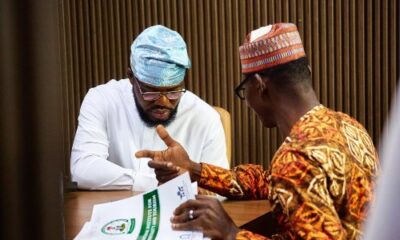
 BIG STORY3 days ago
BIG STORY3 days ago
 BIG STORY2 days ago
BIG STORY2 days ago
 BIG STORY4 days ago
BIG STORY4 days ago
 BIG STORY3 days ago
BIG STORY3 days ago
 BIG STORY4 days ago
BIG STORY4 days ago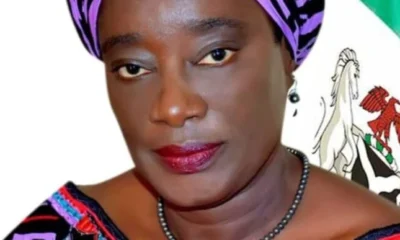
 BIG STORY4 days ago
BIG STORY4 days ago




